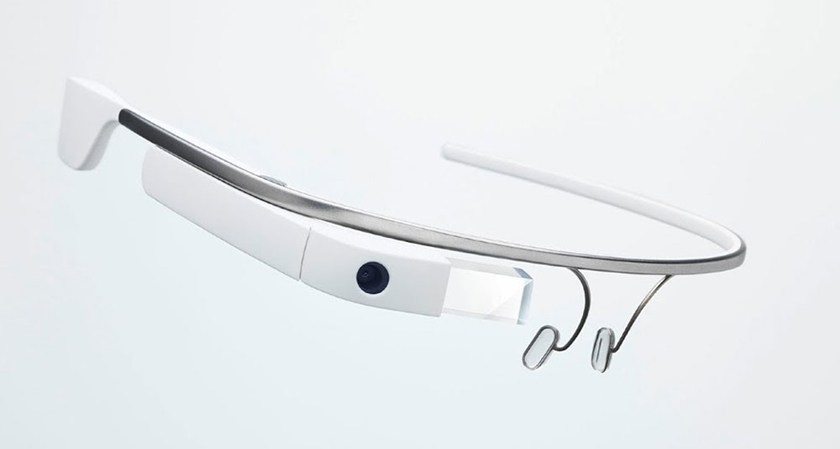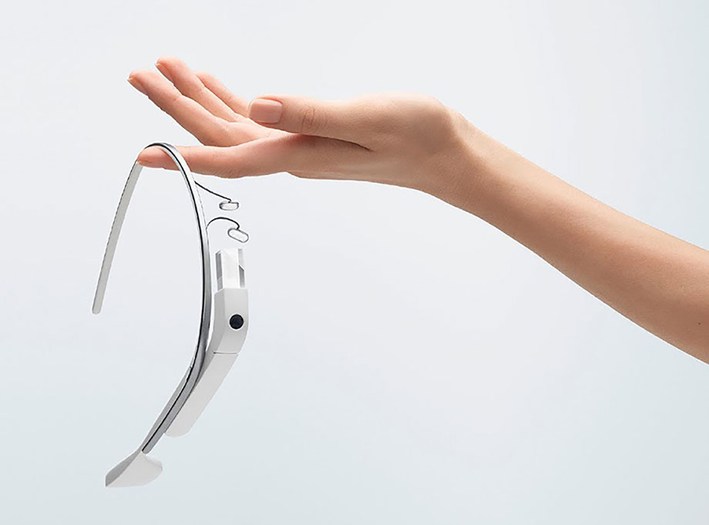TORONTO - We were told that when we wore Google’s new “Glass” eyewear, we’d be looking at the future of travel. Well, it appears that claim was a bit shortsighted and the future of “Glass” technology itself now looks blurred.
That dire forecast comes after the BBC reported in mid-Janaury that Google has decided to end the sale of the futuristic “Glass” technology and focus instead on “future versions of Glass.”
Needless to say, those who forked over the $1,500 U.S. demanded by Google for the glasses are now seeing red. And the pricetag, according to industry insiders, is what resulted in the device’s premature downfall — sales of the expensive Glass fell well short of what Google had hoped for.

However, there were other issues with the technology that hurt sales, according to BBC technology reporter Rory Cellan-Jones.
Cellan-Jones reports one of the main issues that plagued Glass was its short battery life — far less than the “one day of typical use” that Google claimed. Users told the BBC that taking videos with the device — one of its biggest selling points — drained the battery very quickly.
Another problem was that, despite an enthusiastic launch, Google appeared to pull back from the technology very quickly when they didn’t fly off the shelves, and so promised “new” features that buyers expected never materialized.
Cellphone users were the main target of Google when they introduced Glass but committed smartphone owners were hard to win over.
The robotic headsets were never truly embraced as a fashion statement by consumers, either -— some felt downright silly wearing them and their very presence in restaurants and other public spaces resulted in some angry reactions — many establishments banned their use. The small, cube like screen that juts out from the user’s eyes freaked many people out.

The wearable optical technology caused quite a stir — both pro and con — when it was first introduced, though. Those who bought them, including industry experts, fell madly in love with Glass — the BBC notes that well known technology blogger Robert Scoble was overheard saying he could not imagine living a day without Glass and he even wore the device in the shower.
The biggest benefactors of the new technology, of course, were supposed to be travellers.
With its GPS guidance system, travellers could never get lost. And finding accommodation in strange cities was just a tap away — the device honed in on the neighbourhood where you were standing and instantly produced listings of properties, complete with price ranges, in the immediate area.
Of course, the thing that most appealed to travellers was Glass’ ability to be an interpreter as well as provide real time flight information.
Google touted how the Glass could enhance the globetrotting experience by sighting its use by world-renowned explorers like John Fitch, who took the Glass along on his Antarctic expedition and recorded the whole experience.
“Glass enabled me to enhance the experience,” said Fitch at the time. “Aside from being able to capture the dynamic environment while my hands were busy, I was able to have detailed conversations with real polar explorers on how a technology like Glass could provide workflows for safety, research documentation and education.
“Once someone interacts with it (Glass) for the first time, there is almost a natural bond between the responsive device and the new usser — like a natural trust is formed when the device listens to you and adds to your existing perspective.”
The well-respected United Arab Emirates Gulf News conducted tests in Dubai with the Glass and for the most part its reporter, Emirati Mohammad Jawad Saeed Jawad, came away impressed.
“All the features on Google Glass work,” Jawad told his readers. Jawad also said he used Glass more to search google.com for facts and questions rather than pull out his laptop or smartphone. However, he admitted wearing Glass in public got some strange reactions.
“I got stopped a dozen times a day and got many questions about how it feels to own one and what I used it for. It seemed like a lot of people I met were very interested in Glass,” said Jawad.
Not interested enough to buy it, though.
Other companies have also launched wearable technology and they too are having a hard time convincing consumers to trade in their smartphones and other mobile devices.
After its launch, Glass quickly became a marketing gimmick. For instance, trendy Virgin Atlantic Airlines equipped all its Upper Class service staff with the devise to deliver more personalized customer service. And Britain’s online travel company, Holidaysplease, offered members of its loyalty program the option of borrowing the Glass while they were on vacation.
The pluses of wearing the Glass were many:
• Glass took hands free photos and videos;
• Emails were never out of your sight;
• News updates were always close at hand; that was especially appealing to people travelling in politically sensitive areas of the world;
• You could search the Internet for facts and points of interest about the places you were visiting;
• You could receive and respond to text messages and incoming calls immediately;
• Using voice commands to track down information was far more convenient;
• Foreign languages were no longer a barrier thanks to Glass’ translator.
Over on the “minus” side, the shortage of battery life was a major issue but there were others:
• Some users found the one-size-fits-all design uncomfortable;
• Sending photos and video were available to Google+ users only.
Google told the BBC it’s committed to working on the future of the product, but did not give a timetable for a relaunch of Glass. BBC also quoted a Google spokesman as saying the Glass project “broke new ground and allowed us to learn what’s important to consumers and enterprise alike.”
Travel geeks who spent the $1,500 for Glass will no doubt be angry but at least the device gave us a quick glimpse into what the future of travel will look like.